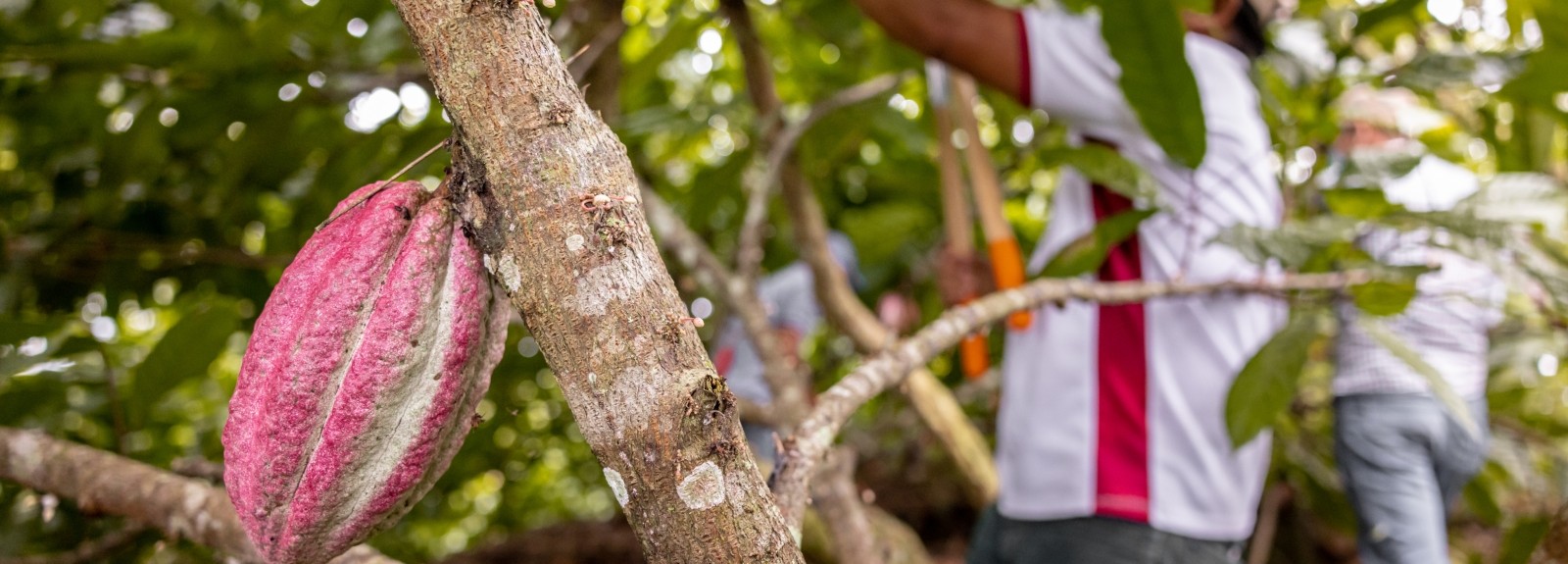Across Latin America, old and unproductive trees, pests, diseases and changing climatic patterns are adversely impacting the production of quality cacao and forcing some farmers to abandon the crop, if not their entire farms.
Lutheran World Relief leads cacao programming for the six-country USDA-funded Maximizing Opportunities in Coffee and Cacao in the Americas (MOCCA) project, helping farmers to overcome barriers to effectively rehabilitate and renovate their cocoa plants while increasing their productivity and income. Through MOCCA, Lutheran World Relief implements a comprehensive approach to promoting cocoa production that focuses on increasing crops yields through agroforestry systems, improving cocoa quality, enhancing the professional capacity of both farmers and producer organizations, and facilitating linkages between cocoa buyers and sellers.
Lutheran World Relief also partners with companies that want to invest in the agricultural and market systems that make cocoa value chain improvements possible for the future, such as higher prices, good genetic material for planting, and more direct, feasible and profitable supply chains for smallholder farmers.
By championing co-creation with local partners to strengthen market-based agricultural development, we are committed to addressing the root causes of migration, poverty and malnutrition through a holistic approach that advances climate and community resilience.
Learn more about our MOCCA work in Guatemala:



